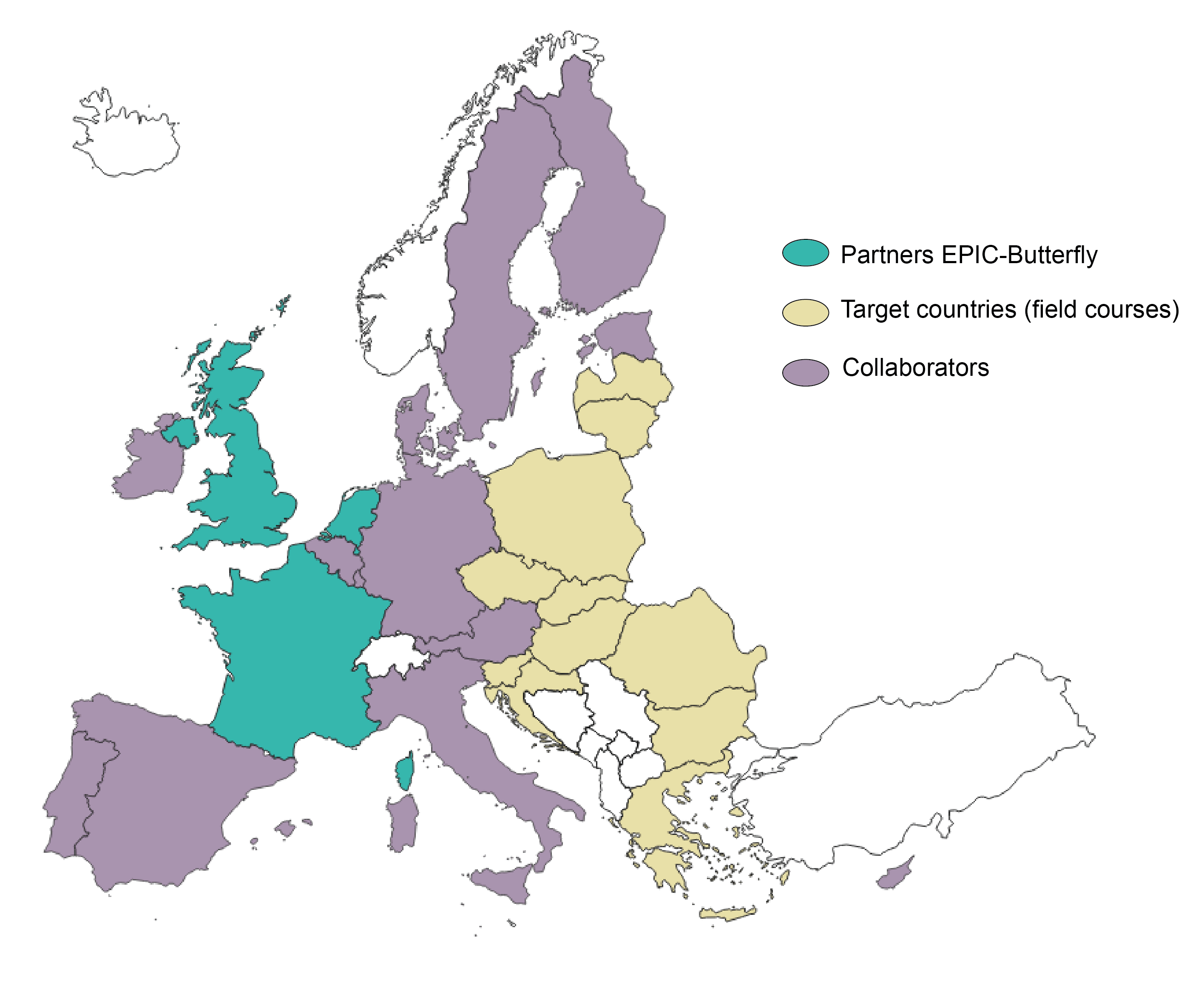EPIC Butterfly -European Pollinator Identification Courses for Butterflies
2025-2026
EPIC Butterfly is a major new project to run butterfly training courses during 2025 and 2026 to strengthen the para-taxonomic capacity in EU Member States.
The project is one of three EPIC projects funded by the EU; the others are on bees (EPIC-Bee) and hoverflies (EPIC-Fly) being led respectively by the University of Mons and the University of Alicante. Together they aim to support preparation for the implementation of the EU Pollinator Monitoring Scheme (EUPoMS) which is a requirement for each Member State under the 2024 EU Nature Restoration Regulation. The project will thus make a major contribution to the EU goal to reverse the decline in pollinating insects and help implement the EU Biodiversity Strategy for 2030.
EPIC Butterfly involves the development of training materials and resources to identify and monitor butterflies according to standard EU-PoMS protocols. The precise methodology is still to be decided but will likely involve counting butterflies on standard 500m transects, using similar protocols to the European Butterfly Monitoring Scheme. Bees and hoverflies will also be counted on the same transects as well as other environmental variables. The number and location of the randomised transects will be determined in 2025 by a separate group appointed by the EU.

EPIC Butterfly will deliver:
- Training resources and online butterfly identification courses
- A series of face-to-face training courses focussing resources on 11 target countries where para-taxonomic capacity is relatively low: Bulgaria, Croatia, Czechia, Greece, Hungary, Latvia, Lithuania, Poland, Romania, Slovakia, Slovenia
- Two laboratory courses for advanced training to identify cryptic species
- A butterfly species list for each EU Member State and region to target identification requirements
We look forward to working with our BC Europe partners in the EU will get involved with the project and will report further details as soon as possible.
EPIC Butterfly is funded by a service contract from the European Union Directorate General for the Environment. It is led by the UK Centre for Ecology and Hydrology and involves two major partners: BC Europe and the Office Pour les Insectes et leur Environnement (OPIE).

